AgriVision 2023: The path to future-proof proteins
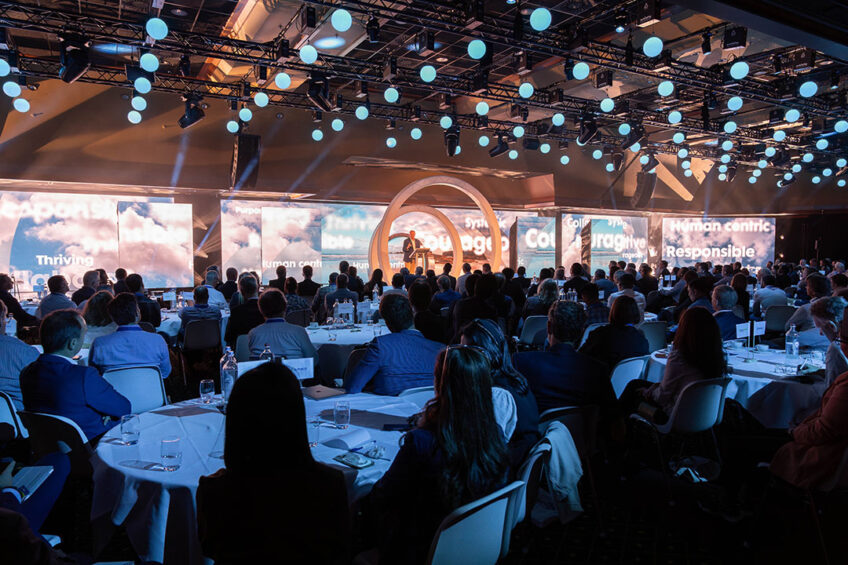
More than 300 delegates representing every segment of the feed-to-food value chain convened in the Netherlands from 26-28 June at AgriVision to discuss pathways for future-proofing proteins.
Leaders at the forefront of industry, research and development, agri-tech, policy, and consumer behaviour shared emerging insights, moderated panel conversations, and challenged attendees to take action to meet a projected 70% increase in protein demand by 2050.
Nutreco COO, David Blakemore, opened AgriVision: “As players in the feed-to-food value chain, today’s threats will drive us to be better, and what we do over the coming years will have a significant impact on the future of the planet.”
“Being less bad isn’t good enough anymore”
Paul Polman, former CEO of Unilever, and an active climate analyst, author, and contributor to the UN Sustainable Development Goals, delivered keynote remarks, inspiring delegates to apply a net-positive perspective to rethinking the future of protein away from a linear production model toward a collaborative approach.
“We are literally playing with the future of humanity. The world has been incredibly flexible and increased its capacity to absorb our CO2 emissions, but it’s run out, and we are very close to a negative tipping point.”
Polman urged delegates, noting that the cost of acting has become significantly higher than that of not acting, and “being less bad isn’t good enough anymore”.
Advancements in artificial intelligence
During a panel conversation, participants considered how a surge in climate-focused food labels raises regulators’ and consumers’ concerns about greenwashing. As advancements in artificial intelligence accelerate, panel participants looked at how this is influencing the feed-to-food sector and debated how artificial intelligence will affect decisions across the value chain in the future.
A retailer’s perspective
Today’s consumers increasingly influence how the food they purchase is produced and marketed. Acknowledging this trend, Imke van Gasselt, VP health & sustainable diets at Ahold Delhaize, shared a retailer’s perspective on efforts to improve transparency in the supply chain.
Alternative proteins, data and research
Other areas of the programme delved into Nutreco’s research and development efforts to discover novel protein sources that can reduce environmental pressure on the planet. From a supply chain perspective, Abhay Hanjura, co-founder of Licious, delivered a Bollywood-inspired presentation, The Great Indian Meat Story, to describe how India is deploying on-demand meat delivery channels.
Brett Stuart, president of Global AgriTrends, offered a deep dive into data, sharing findings from research that will influence protein production, retail, consumption, and circular models moving forward.
Zoonotic diseases
Dr Keith Sumption, chief veterinary officer of the Food and Agriculture Organization of the United Nations, delivered cautionary remarks about risks posed by zoonotic disease spill-over. Collectively, nearly 20 speakers remarked on ideas, innovation, and strategies for leveraging policy, technological innovation and social tailwinds to meet projected protein demand in the next half-century.
 Beheer
Beheer

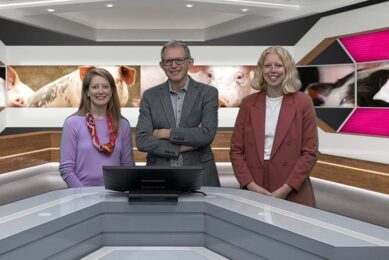
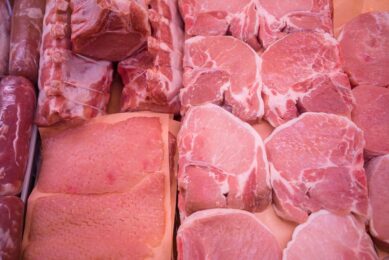
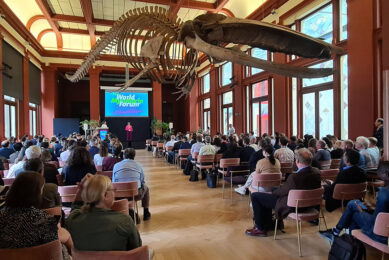
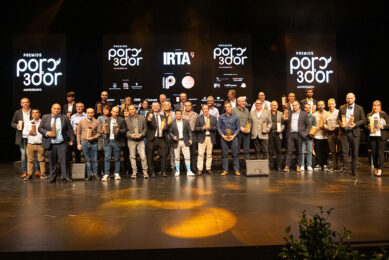



 WP Admin
WP Admin  Bewerk bericht
Bewerk bericht